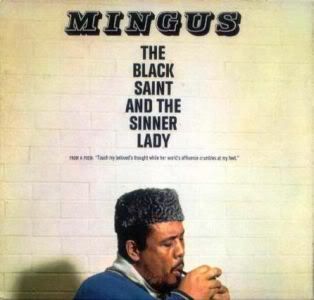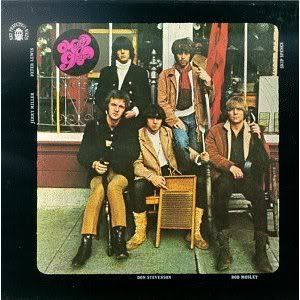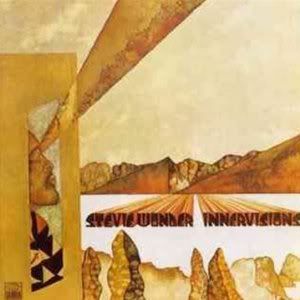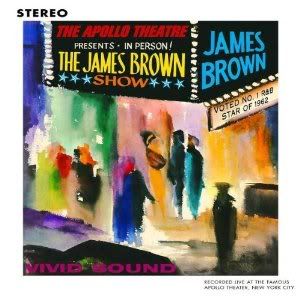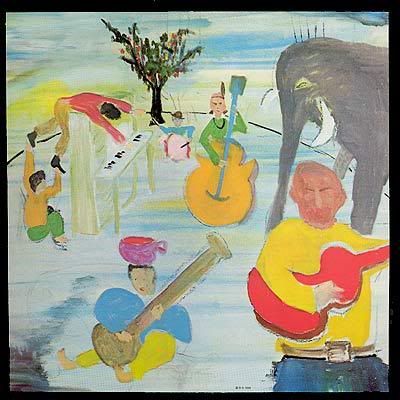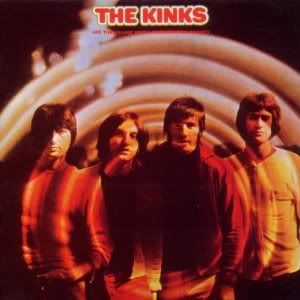 Artist
Artist: The Kinks
Album:
The Village Green Preservation Society
Label: Reprise
Year: 1968
We enter the last quarter of the list with an album that, while I have nobody to blame but myself...I guess I just can't believe it's not higher. I suppose that'll be the case with all of these albums from here on out, but
Village Green is certainly one of the more understated and underrated moments of genius from a band already acknowledged by many as rock's most underrated. Though their quietest album, it comes right in the middle of an era of prolific genius from the group, that also saw the creation of six other magnificent albums and countless singles as well. It is tame in tone, but often nasty in lyrical content. While Ray Davies expresses a longing for simpler times, it's always with a hint of sarcasm, pointed both towards the preposterous nature of longing for the past, and certainly those around him that can't let it go.
Much has been made about the album's place as a counterpoint to other pop music of the era. The Kinks in 1968 were definitively un-hip: they were in the midst of a ban from touring in America, their last hit had really been in 1966 ("Sunny Afternoon") and their previous album, though well-reviewed, was incredibly calm and tame (compared to the burgeoning hippie movement, at least). Indeed, if anything,
Village Green is an even more extreme version of
Something Else. While that album introduced the tameness that would inhibit their popularity for a few years, it still had some genuine pop hits. Indeed, songs like "Waterloo Sunset", "Harry Rag" and "Tin Soldier Man" and "David Watts", even, were pretty logical extensions of earlier songs and singles that had celebrated in an almost silly way the small town follies of England. This is something that the group had begun with "Well-Respected Man" years earlier. From this point on, their lyrical themes would bear little resemblance to most of their peers, but at least through
Face To Face there was some significant loud, rock and roll-ness to their songs.
Something Else was, like its predecessor, a general account of a town, almost. The events, emotions, and people portrayed could've been anybody. This was not the case with
Village Green.
By contrast, the band's 1968 album featured all songs related to a "Village Green." Rather than songs about a hodge-podge of various happenings that have no real geographic or chronological theme, the band creates an album with songs linked by this location. In some instances, like "Big Sky" and "Animal Farm" and "Sitting By The Riverside," as well as the two title tracks, this is achieved through lyrical content that could only take place in a town like Village Green. In other instances, the only real link is the consistent and mostly-acoustic instrumentation. "All Of My Friends Were There" for example, an early precursor to Davies' theatrical obsession of the 1970s, gives off a feel that all of the characters you've been hearing about in the early songs are the ones that were there to see this failed performance. If
Something Else has an achilles heel, it's that the style of the songs is almost too-diverse, and it's really their only album of the era that this can be said about. Yet apart from a linkage in styles, the Kinks already were capable of and celebrating-while-mocking their own background, it's really The Kinks sense of humor and attitude towards the content of the album that makes it so special.
The Kinks lyrics must not be taken at face-value. As mentioned earlier, "Well-Respected Man" is a pretty good precursor to the band's lyrical themes for the rest of the decade. After early singles like "Tired of Waiting For You" and "You Really Got Me" which were, lyrically at least, nothing exceptional compared to what would come, this song hints at their sardonic tone they would use consistently. The "Well Respected Man" in the song ends up being the butt of the joke, as his regiment and routine really aren't to be celebrated. It's even more clear the Kinks treat these people with sarcasm on a song like "Mr. Pleasant" where the man who has done everything right and done what he was supposed to do is beating cheated on. These songs take to task a culture of people who do nothing but what they are supposed to do, which is its own downfall. Looking at Village Green, it may seem like "People Take Pictures of Each Other" is a tale about looking at old pictures and missing the good old days, but I don't think that's the case. The narrator asks that you "show me no more, please," indicating that he misses the days the world was young and free, which it isn't anymore. The next verse, singing "People take pictures of each other, and the moment to last them forever, of the time when they mattered to someone" shows the absolute fraud that is taking all of those photos, and reminiscing about the good old days. The good old days were really lies, and photos have the ability to accentuate the fakeness of the past, not happy nostalgia. "Picture Book" earlier in the album does the same, with "Picture book, of people with each other, to prove they love each other, a long time ago." These lines all prove, to me at least, that the themes on this album are not of a time that
should be missed. One begins to think in "Village Green" when Ray sings that he will return there and drink tea with Daisy, it's during a different moment. If the narrator of the picture songs is realizing or experiencing the lies that the photos bring, then in "Village Green" he's under the false spell of nostalgia again. In songs like "Do You Remember Walter" and "Big Sky" this loss of innocence and youth hinted at is again in place. Both of those songs ALSO feature lyrics about freedom ("do you remember how we said we'd fight the world so we'd be free" and "one day, we'll be free, we won't care, just you wait and see," respectively). Ray is now old enough to know it was all a lie. To sum it up: as great as it is to think the world is at your fingertips and everyone around you is wonderful when you are young and small, the world has a way of crushing your dreams. When you return home, you know the truth, but the hardest part is watching a new generation live out the lies you once believed in. In yearns for nostalgia, Ray Davies doesn't want to "go home" he wants to go back to his past and have something better to believe in, as foolish as it may really be.
So really, it's an incredibly dark album. That it retains its pop sensibilities is another monumental achievement for the band. Beautiful string arrangements on "Animal Farm" make it the album's centerpiece. The only two really electric songs on the album, "Last Of The Steam Powered Trains" and "Wicked Annabella" retain a subdued charm that balances out the power of the themes (a steam powered train and a wicked woman). The steam-powered train is the perfect metaphor for the album, which at one moment is the most powerful vehicle we have, but in its current incarnation, pales in comparison to its modern peers. One more song worth pointing out is "Johnny Thunder" which is this album's "David Watts." But if the latter represented the feeling a peer has when viewing the big man on campus (I would not say there's much irony in that song--it's really a celebration of
that feeling when one is a youth), "Johnny Thunder" is from a more adult perspective. The people of the town can't get through to him or bring him down...which implies they must be
trying to do so. This big shot needs to come down from the clouds and be grounded. And again, that idea of freedom is here, as Johnny has vowed to never end up like the rest.
The album is just perfect in every way. It has a back-story that's interesting, and after being finished at 12-tracks, Davies had it pulled, and it eventually was its final 15. This added to some degree of its commercial failure--that is--not having a well-planned out release/marketing schedule. The group would continue to make more well-organized concept albums for years to come, and still had some great albums ahead of them. But their high point, and their last album as the original quartet with bassist
Peter Quaife, was this one. An essential album that requires significant attention.
